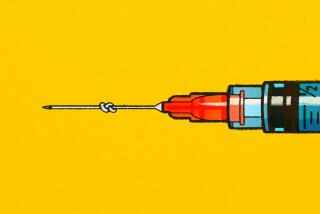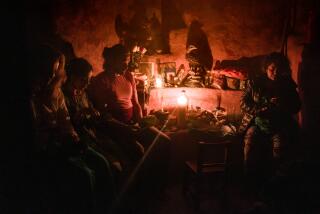Alternative medicine gets a checkup
- Share via
Why, in a country where medical training and expertise is the envy of the world, would an American couple enlist the services of a Maori tribesman to help them with fertility problems?
Why would a man diagnosed with pancreatic cancer turn away from conventional treatments involving radiation and chemotherapy and hook up with a doctor prescribing coffee enemas and daily handfuls of nutritional supplements?
Or what about the young boy beset with erratic behavior and emotional problems, whose parents ignore a psychiatrist’s recommendation for a regimen of Prozac and Ritalin and instead throw in their lot with a doctor who treats him with a tincture derived from ground tarantula?
The answers are complex, but tonight’s installment of “Frontline,” airing at 9 on KCET, probes the issues surrounding alternative medicine with depth and clarity.
The hourlong program, entitled “The Alternative Fix,” explores the sometimes uneasy coexistence of mainstream medicine and the unconventional methods on which Americans spend $48 billion a year.
The program attempts an evenhanded approach but ultimately remains tilted toward skepticism.
But alternative-care guru Dr. Andrew Weil says there’s no mystery as to why the field has gained such popularity.
“People are very fed up with being passive recipients of authoritarian, paternalistic medicine,” he says. “Conventional medicine is now seen as being reckless, dangerous, forcing on people things that are toxic. It’s become out of balance in its enthusiasm for external technological solutions to problems.”
Dr. Robert Park, whose book “Voodoo Science” takes on alternative medicine, believes otherwise. “What’s driving this, of course, is what drives everything: money.”






